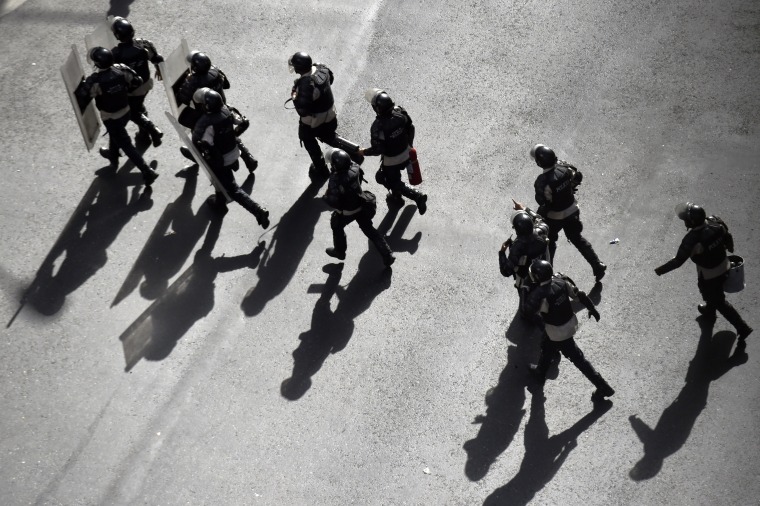Nearly a year ago, Donald Trump fielded some reporters' questions from one of his golf resorts, and one asked about possible options for dealing with the "mess" in Venezuela. The president, to everyone's surprise, raised the specter of addressing the nation's unrest by deploying U.S. troops.
"We have many options for Venezuela. And by the way, I'm not going to rule out a military option," Trump said, adding, "We have many options for Venezuela, including a possible military option if necessary." He didn't go into any details, but moments later, Trump once again said that "a military option is certainly something that we could pursue."
What we didn't know until yesterday was that the president was exploring this behind the scenes, too.
As a meeting last August in the Oval Office to discuss sanctions on Venezuela was concluding, President Donald Trump turned to his top aides and asked an unsettling question: With a fast unraveling Venezuela threatening regional security, why can't the U.S. just simply invade the troubled country?The suggestion stunned those present at the meeting, including U.S. Secretary of State Rex Tillerson and national security adviser H.R. McMaster, both of whom have since left the administration.
White House officials explained why this would be a terrible idea, but the Associated Press' report noted that Trump "pushed back" and "pointed to what he considered past cases of successful gunboat diplomacy in the region ... like the invasions of Panama and Grenada in the 1980s."
The Republican president proceeded to raise the issue with Colombian President Juan Manuel Santos, and in September, Trump ignored his advisers' guidance and discussed his idea "with leaders from four Latin American allies" on the sidelines of the U.N. General Assembly.
Why does this matter a year later? A few reasons, actually.
First, as Slate explained last summer, "Throughout his power grab that has accompanied Venezuela's descent into chaos, [Venezuelan President Nicolás Maduro] has long warned the United States was planning to invade the country. Trump's words seemed to play straight into his narrative."
It's unclear if Trump realized he was helping an American adversary. It was also unclear if Trump cared.
Second, those who somehow convinced themselves in 2016 that he would be reluctant to use military force abroad -- I'm looking in your direction, Maureen Dowd -- failed to fully appreciate the fact that Trump has few core principles in any area of public policy.
And finally, let's not forget the broader context. While Trump was kicking around the possibility of invading Venezuela, he was also feeling "desperate" about Special Counsel Robert Mueller's investigation into the Russia scandal.
Many of the president's critics have long wondered what the pressure of the scandal might lead Trump to do. Those questions are provocative, of course, but they're also rooted in fact.
